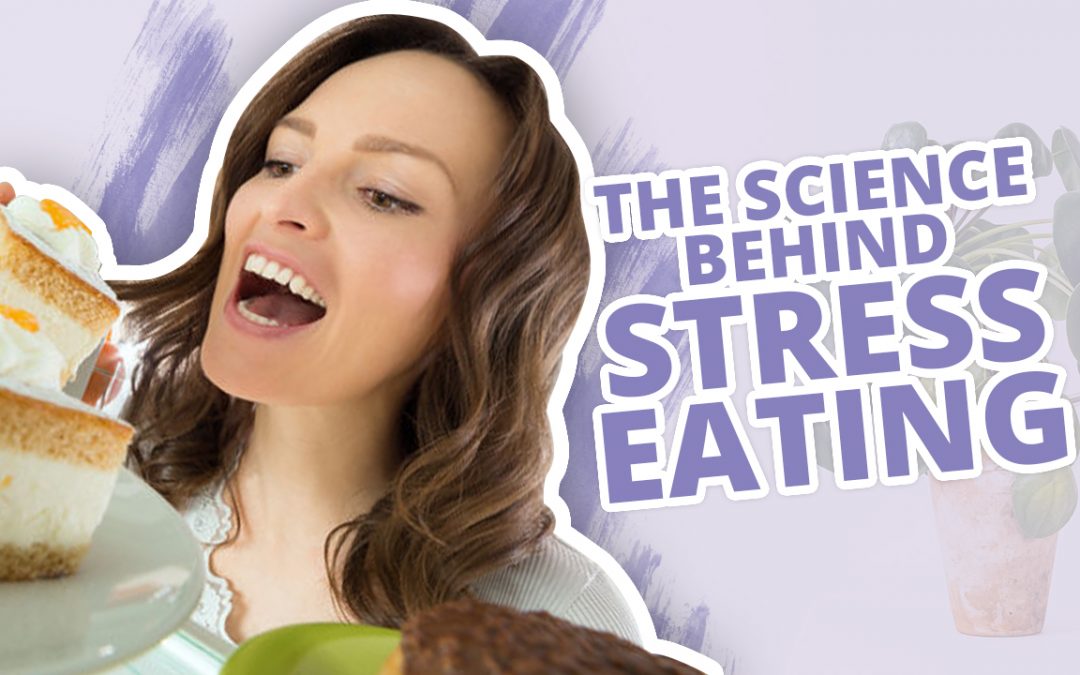Stress eating, compulsive overeating, or what you may think of as emotional eating may feel like a purely emotionally driven reaction for most people. But do you know that there are biological factors behind these behaviors that also reinforce them? In this video, I’ll share the science behind it all and how hormones and even your sleep patterns can reinforce it.
When short-term stress is triggered, it can cause a loss of appetite. But when stress is constant, the stress hormone cortisol can be switched on causing you to unnecessarily crave sweets and rich foods. And eating these foods can lower cortisol, which might sound helpful, but it creates a reinforcing cycle to reach for those comfort foods.
Those foods you are driven to in your need to self-soothe, but in reality, they do anything but comfort you for the long term.
There are many ways to manage this biological factor, along with what else can set you up to stress, eat, overeat, and binge eat. And it’s not only stress hormones that play a role in such eating behaviors.
Your sleep patterns can impact your hunger hormones as well. When your body is deprived of sleep it is dictated by its circadian rhythms, which are the biological processes we’re carrying on naturally, on a 24-hour cycle. You can experience messaging that you’re hungry, and the tendency to engage in nighttime overeating appears.
In my practice, I teach the necessary tools and strategies that help people manage stress, calm stress hormones, resulting in steering clear of that stress, eating, overeating, and even binge eating. I guide you to explore who you are as an eater.
Next Steps
If you enjoyed this content, please…
Join our free Facebook Group The Freedom Promise Way full of like-minded health-seekers on a similar journey.
If you are interested to know how our team can help you get started on your journey back to health, schedule a discovery call.
To help you get started on your health journey, I have created a guide: It contains tips about what to do to get started on your journey to a better body, and busts a few myths about chronic illnesses. Simply click here to download the guide!




0 Comments